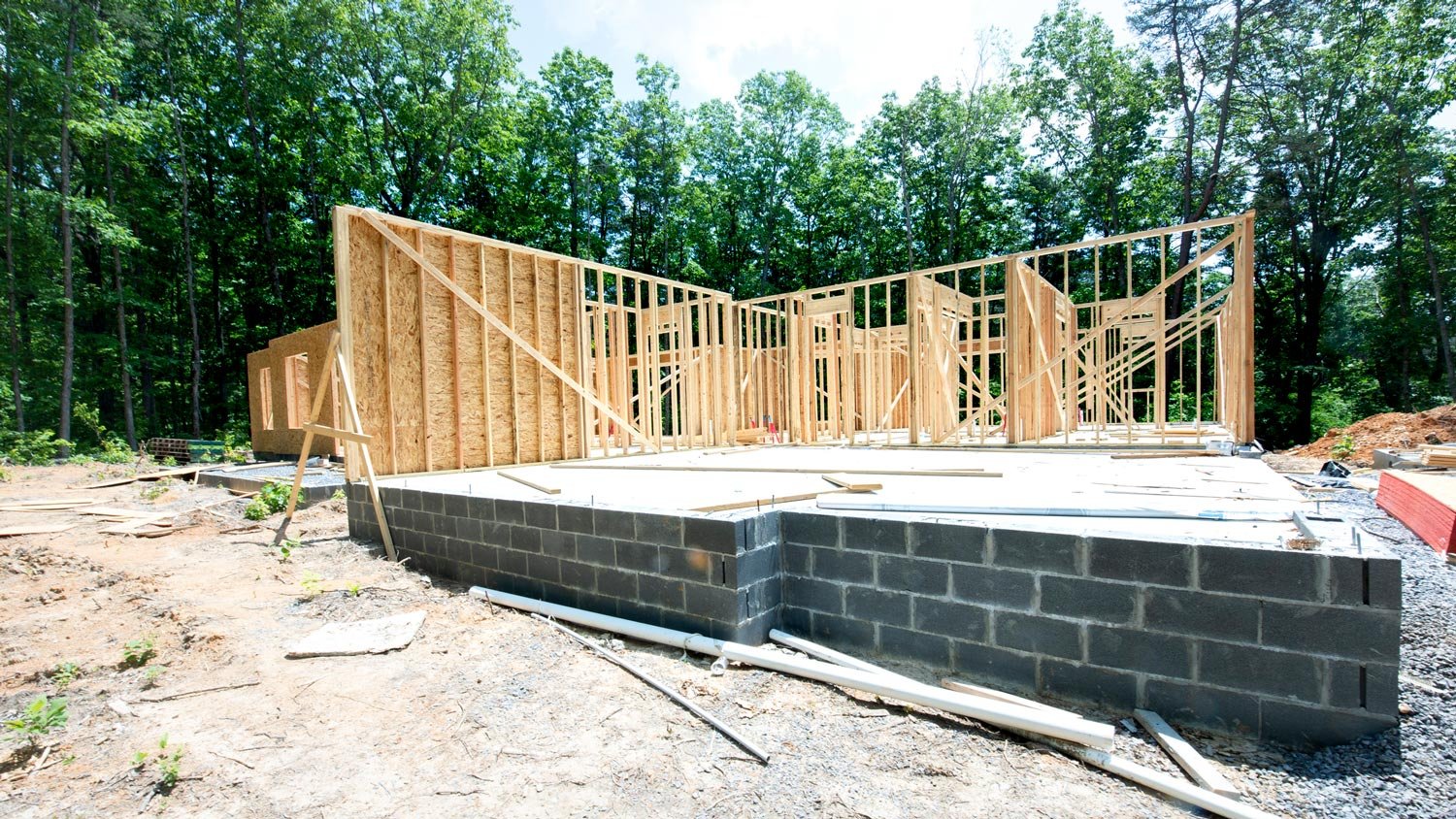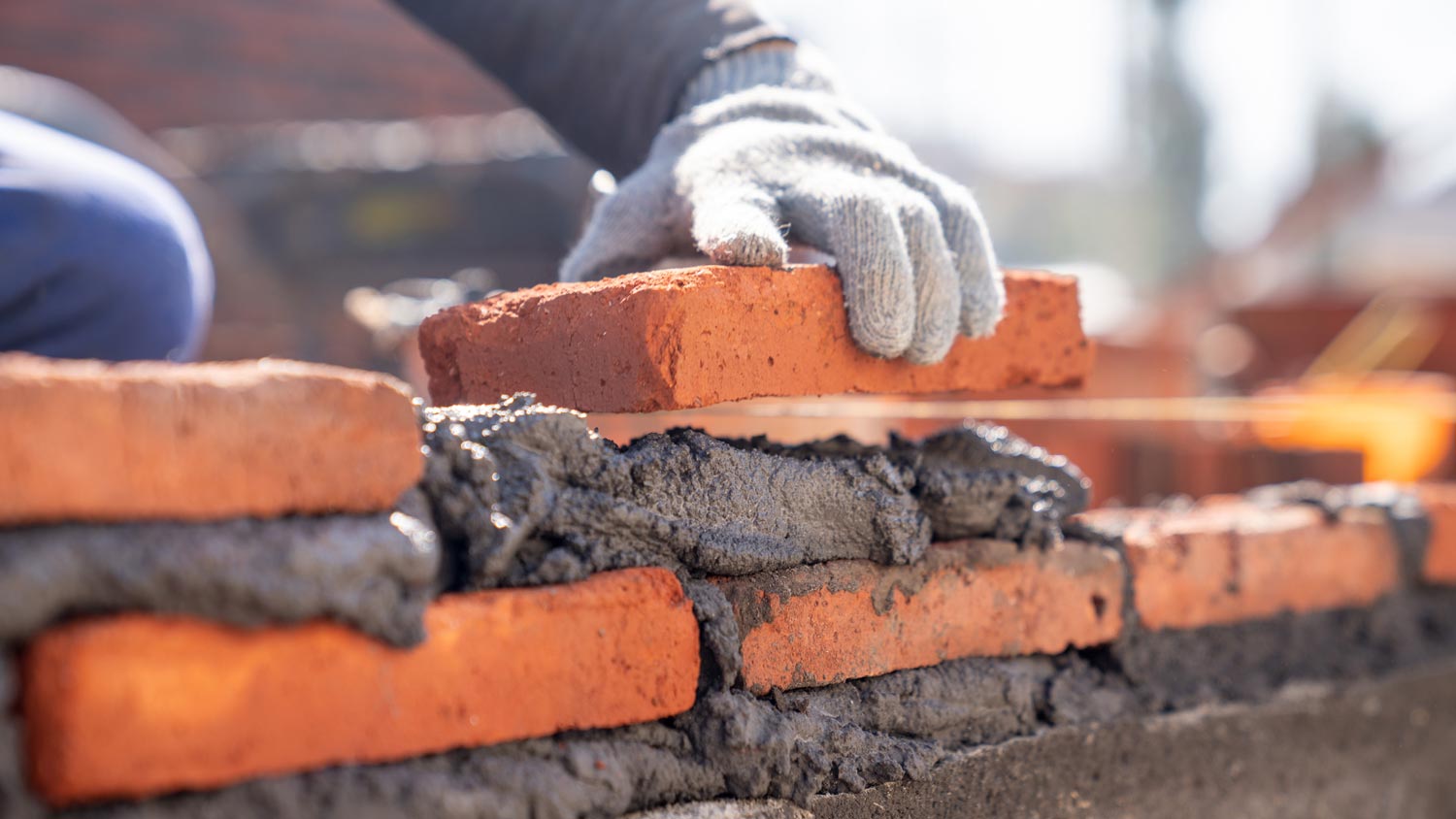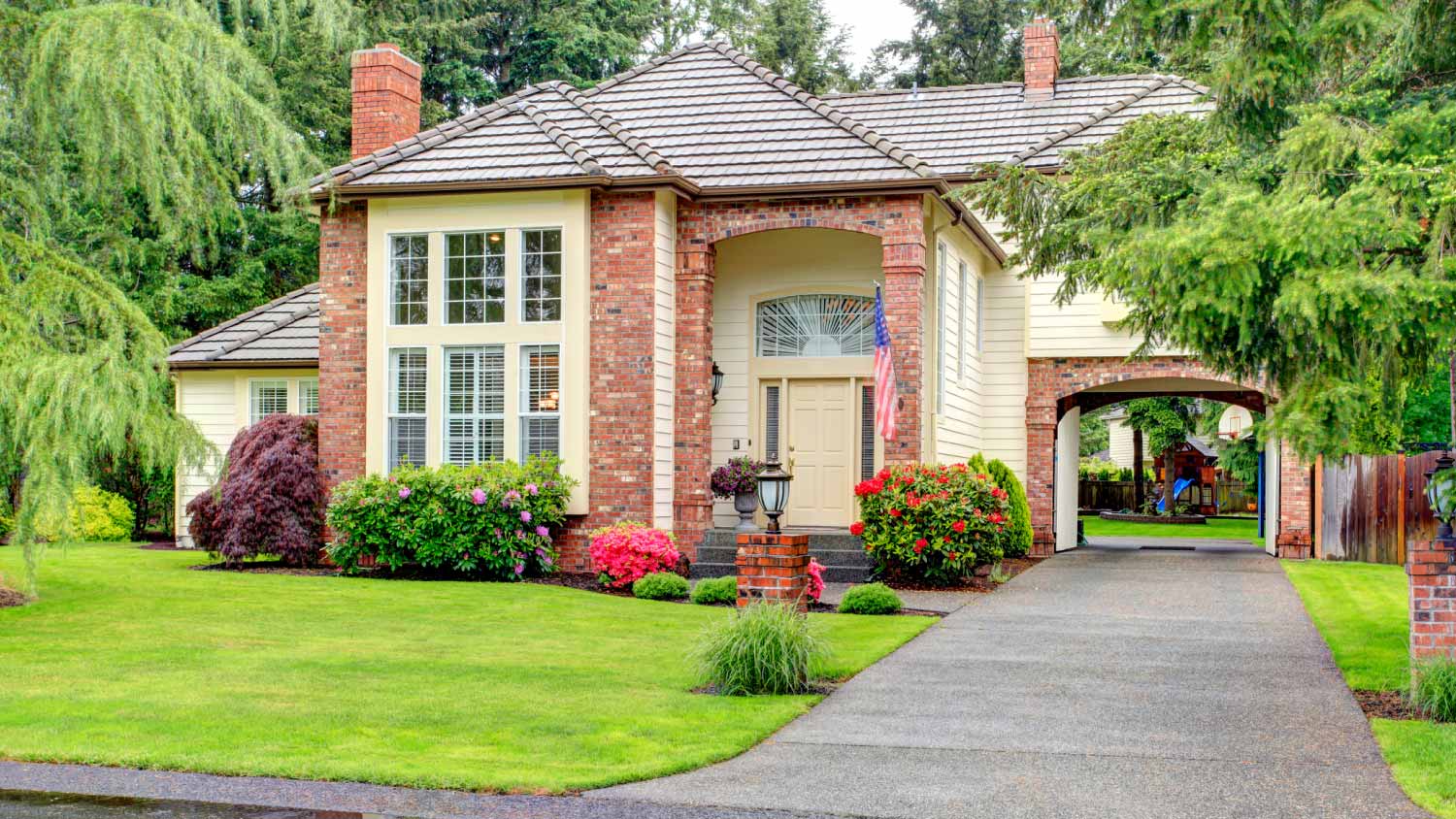
The cost to brick a house depends on several factors, like labor costs, home size, and brick types. Use our guide to estimate your bricking costs.
Concrete blocks and bricks are both strong, sturdy materials, but they have some key differences


Both concrete blocks and bricks are strong and fire-resistant.
Concrete has a more utilitarian look, while brick is prized for its beauty.
Building with concrete blocks can be slightly less expensive.
If you’re building a foundation or a wall, you want it to be sturdy. Your home is your castle, after all. For homeowners like you, bricks and concrete blocks are good options. But which is best?
This comparison guide breaks down the pros and cons of each material and how they match up head-to-head in several categories. After you’ve made your choice, contact a masonry professional near you for a consultation and a quote.
Concrete blocks are larger, lighter in color, and typically used for structural walls in newer construction. Meanwhile, bricks are smaller, denser, and often chosen for their durability and classic appearance. Bricks tend to last longer with less maintenance, but concrete blocks are faster to install and more budget-friendly. If speed and cost are a priority, concrete is your best bet. But if you're looking for a combination of strength and aesthetics, brick may be a better fit.

Also known as concrete masonry units (CMU), concrete blocks are one of the most fundamental construction materials out there. They’re dependably strong and come in a variety of sizes and shapes. Here are more pros and cons to consider.
| Pros | Cons |
|---|---|
| Faster and easier to install than brick | Shorter lifespan than brick |
| Relatively affordable | Not as aesthetically pleasing as brick |
| Difficult to match and repair |
Best for:
Homeowners prioritizing budget and fast installation
Projects where the structure will be covered
Load-bearing walls, garages, or retaining walls
Minimalist or industrial builds where appearance is secondary
Because they’re intended for use in load-bearing walls, concrete blocks are incredibly strong. Look for concrete blocks that meet ASTM (American Society for Testing and Materials) standards; this means they meet or exceed requirements for compressive strength.
Concrete blocks are also easier to install than brick, and they can help muffle unwanted noise. Plus, because concrete blocks are often made with recycled materials, they’re considered to be an eco-friendly option.
While concrete blocks are fast and affordable to install, they don’t hold up as well over time as brick. They’re more porous, so they absorb moisture more easily and can degrade faster without proper sealing, especially in wet or humid climates.
Concrete blocks also lack the aesthetics of brick, often requiring paint or cladding to look polished. And while they're fire-resistant, standard concrete blocks generally offer 1 to 2 hours of protection, while brick can withstand more time. In addition, if a concrete block is damaged, repairs are harder to blend in seamlessly and often require replacing a full unit.

Bricks have been a popular building material for generations, valued for their durability and timeless good looks. Here’s more on the advantages and disadvantages of building with bricks.
| Pros | Cons |
|---|---|
| Strong insulation | Slower to install than concrete blocks |
| Extremely fire-resistant | More expensive to repair |
| Classic appearance | Higher costs compared to brick |
Best for:
Homeowners prioritizing aesthetics and long-term value
Projects where a visible finish matters
Builds where insulation and energy efficiency are important
Like concrete blocks, bricks are strong, low-maintenance, fire-resistant, and eco-friendly; a brick’s ASTM classification will indicate what type of building project it’s best for. What sets brick apart from concrete blocks is its enduring beauty—when you build with brick, you’re choosing a material that will last for a century or more and will never go out of style.
Bricks also have a higher R value than concrete blocks, which means they’re better at insulating and will likely save you money on energy costs in the long run.
Bricks come in an attractive but limited palette, and there’s not much you can do to modify their appearance. They don’t lend themselves well to painting, so homeowners are limited in their customization options.
If you have to repair the brick later, it can be pricey. The cost to repair a brick wall is around $1,400.

Here’s how these two materials compare in several key categories.
Bricks easily get the win here, thanks to their classic, timeless look that is highly desired by homeowners. Concrete blocks simply aren’t as attractive.
Concrete blocks, which can be dyed different colors, are easier to customize. Painting over brick generally doesn't work very well.
While both concrete and brick can last for many decades, brick tends to maintain its integrity and appearance longer and with less maintenance because it's denser, less porous, and more resistant to moisture, weathering, and surface erosion.
Concrete blocks are generally more affordable than bricks, making them a popular choice for larger projects where budget is a concern. On average, concrete blocks cost around $1.25 to $2.50 per block, while bricks range from $0.35 to $0.90 per brick, but you need around seven bricks to cover the same area as one concrete block.
Because brick is highly desirable on the real estate market, it will typically offer a bigger boost to your home’s value than concrete.
From average costs to expert advice, get all the answers you need to get your job done.

The cost to brick a house depends on several factors, like labor costs, home size, and brick types. Use our guide to estimate your bricking costs.

The cost to replace brick front steps depends on the type of brick, square footage, pattern, and more. Learn how much you may spend on this project.

Need to repoint brick in your home to make your home look fresh and new? Use this guide to repointing brick cost to price out your project before starting.

Burnt clay bricks are the most popular option in modern construction, but there are others to consider as well. Here’s a look at seven common types of bricks.

The steps for how to repoint brickwork aren’t necessarily difficult, but they do stack up quickly. See what this project entails to determine whether it’s best left to a pro.

Have a design idea for a stone walkway, walls, or steps? Learn how to cut stone and boost your home's curb appeal.